Retelling an ancient redemption while praying for its own, a tiny Ukrainian community gathers in a synagogue destroyed by the Nazis, under the shadow of Russia’s onslaught
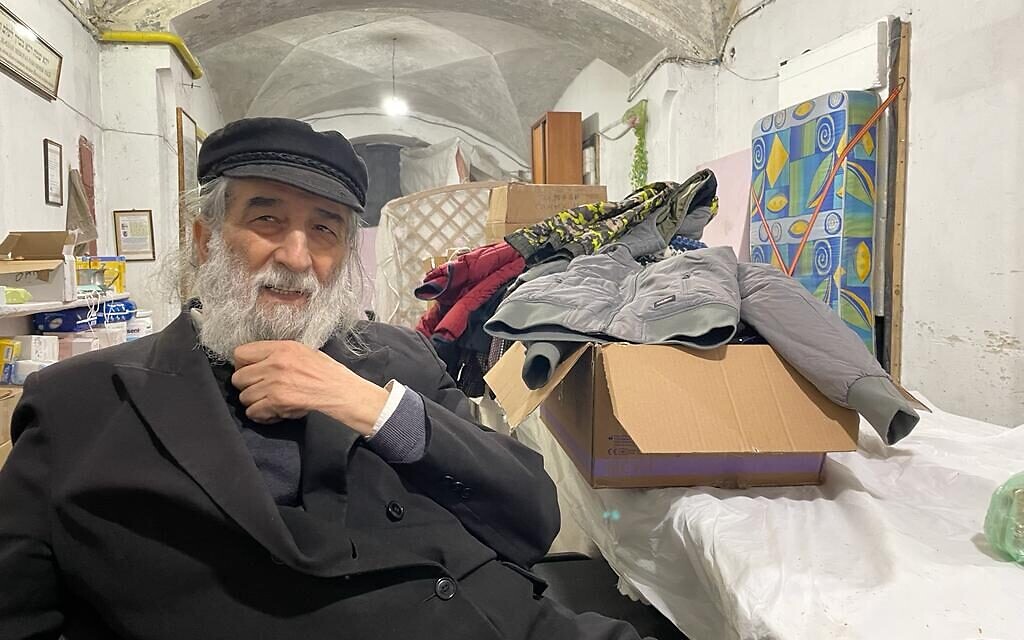
LVIV, Ukraine – Meylakh Sheykhet, lay leader of the Turei Zehav community, opened a heavy wooden door and beckoned me inside. He was rushing, because although the Book of Esther — or megila — should be read at sundown, his community moved its reading to the late afternoon, “because everyone wants to get home before curfew” at 10 p.m., he said.
Without a rabbi and a proper building, Turei Zahav is not considered one of the two operating synagogues in a city that was home to over 100 sanctuary buildings before World War II.
Rather, housed in the ruins of Golden Rose, a Renaissance-era synagogue that used to be Lviv’s oldest until it was desecrated and destroyed by the Nazis during the Holocaust, the community has been creative with preserving its heritage.
The few congregants’ current sanctuary is the former entryway of the synagogue, to which they affixed a wall to create a sealed space. It’s now stuffed with prayer books and Judaica, as well as mattresses and boxes of clothing donated for Ukrainian refugees, about a dozen of whom sleep in the prayer space every evening.
Sheykhet grew up in Lviv and, after a brief stint in the US, is now the Ukraine Director for the Union of Councils for Jews in the Former Soviet Union. Among his responsibilities, he lobbies the Ukrainian government to restore Jewish historical sites, including Golden Rose.
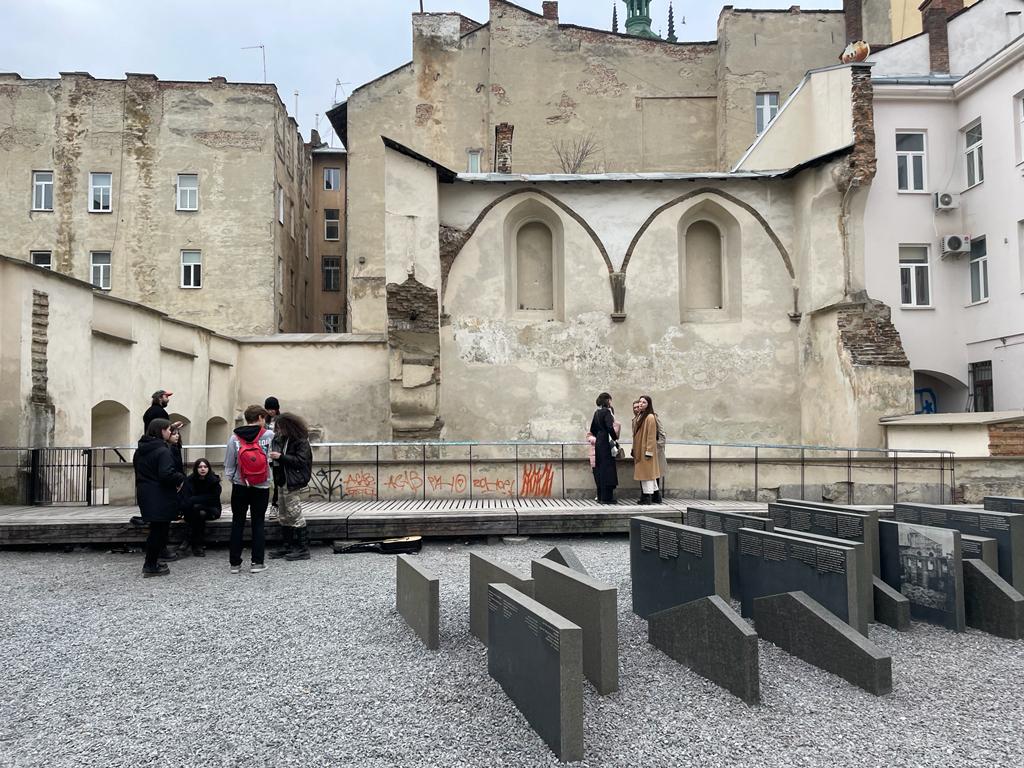
On Wednesday evening, his community boasted five members, who were guarded by two security staff. “We’re here all the time,” one said.
Turei Zahav has taken its hits as much from assimilation and immigration to Israel as it has from COVID-19 and, now, the war.
Before the pandemic, Turei Zehav boasted “four minyans a day,” said Sheykhet, referring to a Jewish prayer quorum of 10 people. Now, it can’t fill one.
Those who remain
The community that remains is skewed older. All in attendance for the Purim service were at least middle-aged, and came without their broader families. Although Sheykhet said, “We plan to have a Bar Mitzvah again,” no specific plans are on the horizon.
With the arrival of the war, “many left to Israel for shelter,” he said, “and they were planning to come back.”
But, he said, “maybe they will not come back. They will see that they have a nice life in Israel and not come back. We don’t know.”
“Everybody wants us to exist,” Sheykhet said, tugging on his long, white beard. “All of the [local] Jews — secular, non-secular — are happy for our community to exist.”
“But the main point is they have to join. They have to be present and share the richness of Jewish life.”
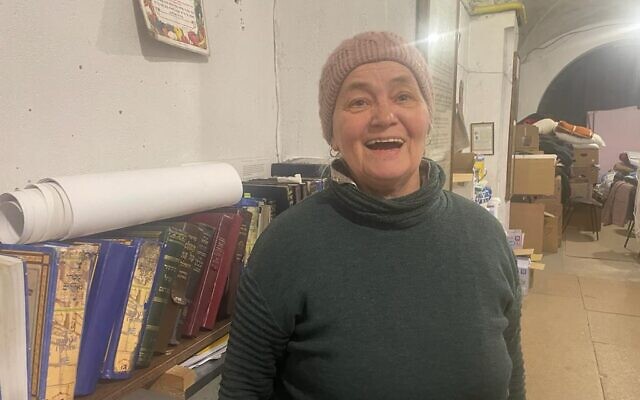
Nonetheless, “the skeleton of the community remains,” said longtime member and septuagenarian Leah, who, like all present other than public figure Sheykhet, declined to give her last name.
Leah’s own grandson lives in Israel, and her story of visiting for his wedding included a “greeting” by a Jerusalem member of the state Rabbinate, who quizzed her on her Jewish heritage.
“I passed! I knew all of the answers,” she said with pride.
As there is no civil marriage in Israel, marriages are performed by religious authorities, or done abroad and retroactively recognized by the state. Before performing Jewish marriages, the Rabbinate has the authority to establish Jewish bona fides, and takes care to determine the religious status of immigrants, such as Leah’s grandson.
Michael, Ukrainian-born but a sometime resident of Haifa, arrived wearing fatigues and a kippa under his pageboy hat, although he’s not in the military, “yet.” Visibly harried, Michael was in his family’s second home in Lviv when the war broke out, and his wife and 7-year-old remain trapped in Kyiv.
“How do you think I feel?” he said. “I call them five to six times a day.”
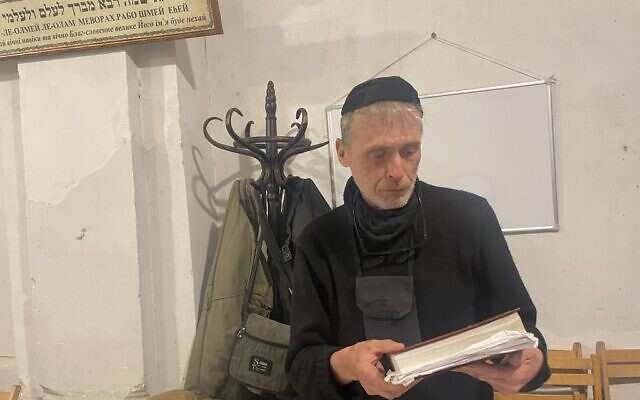
On the 21st day of Russia’s invasion, the community didn’t wear Purim costumes, prepare a spiel, or break hamantaschen, the traditional holiday pastries. Rather than festive, the atmosphere was tense, but comfortable. Everyone had their eye on the clock.
With a gentle suggestion that “maybe you should like to keep Leah company,” I transitioned behind the wooden mehitza, or separation barrier between men and women that is a common prayer custom for observant Jews.
The table in the women’s section, lovingly wiped down by Leah before the reading began, was an island of calm in a sea of mattresses, diapers, clothing, and other donations from a Jewish community in Baden-Baden, Germany, to Ukrainian refugees, which Turei Zahav is distributing.
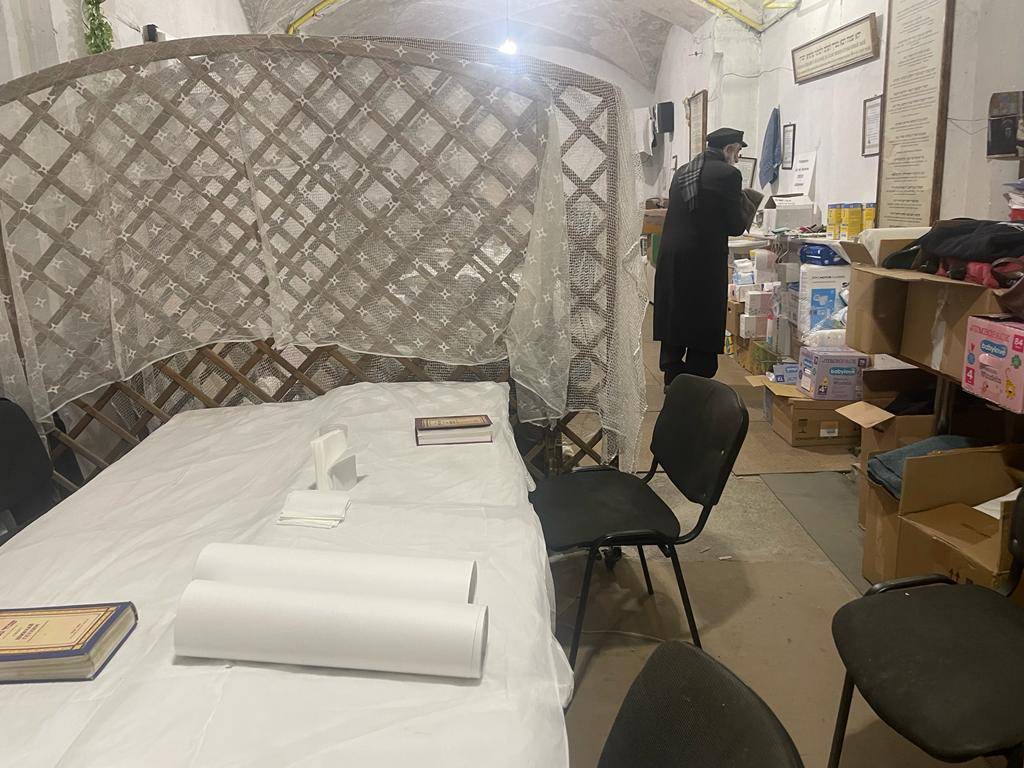
Sheykhet, who grew up in the Soviet Ukraine and never followed an interest in rabbinical studies because of fears of regime retribution, started a slow, methodic chant from a weathered parchment scroll.
In the Yiddish style, he rolled his Hebrew letter “tav” into an “s” sound, and in the universal style, joined with everyone to pound his fist on the table at the mention of Haman.
After the megila reading ended, Turei Zahav reconfigured its sanctuary into a refugee shelter for the night, ending the story about redemption from the brink of annihilation, while praying for Ukraine’s own.
“Please G-d,” said Sheykhet, “let this war end.”
As reported by The Times of Israel
